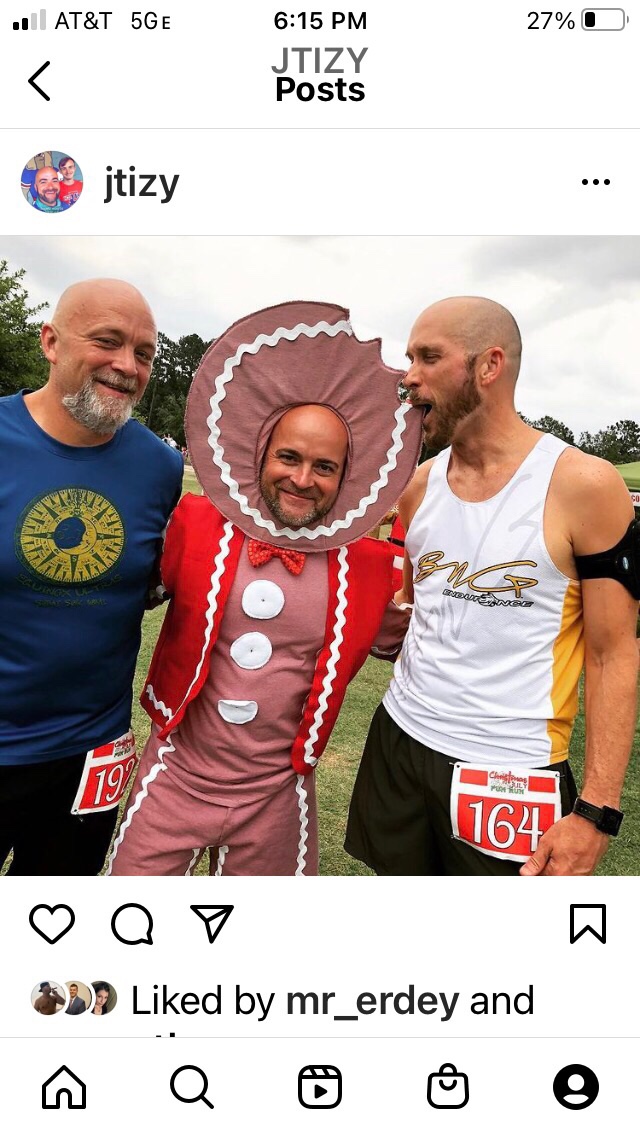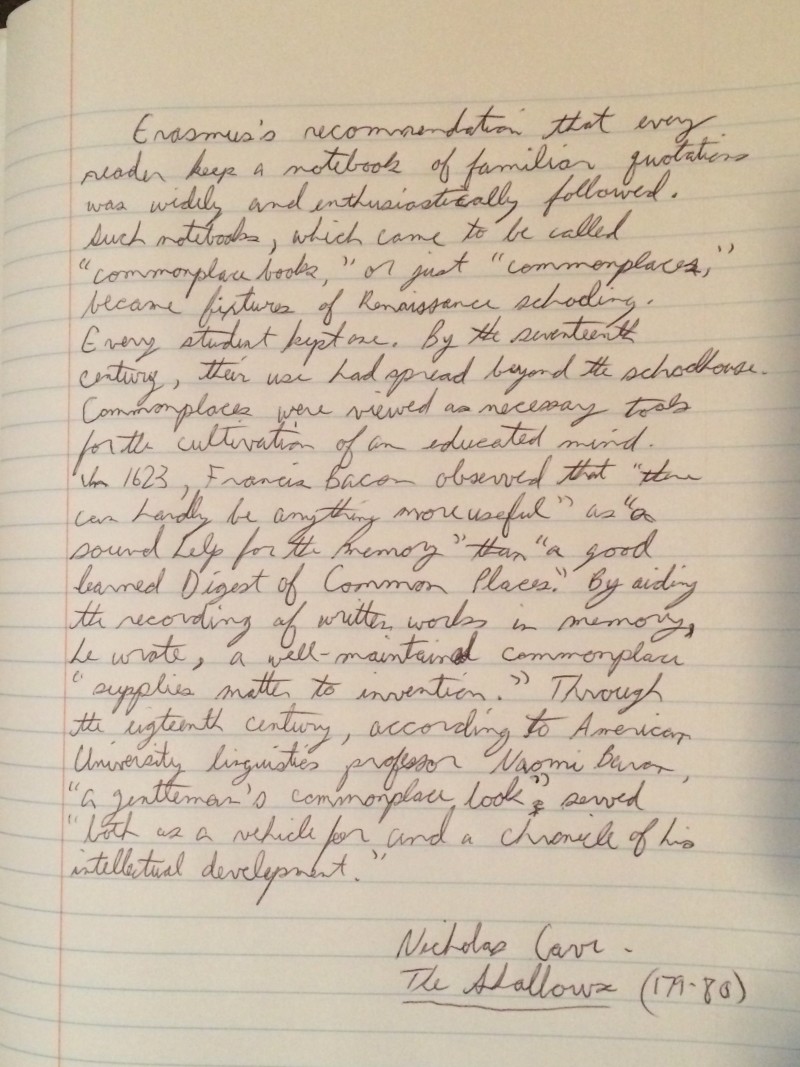Episode audio: https://anchor.fm/thompson-running/episodes/The-Best-Time-of-Day-to-Run-epjfnt
In Episode 4, I talk about the best time of day to run based on the ideas in Daniel Pink’s book When: The Scientific Secrets of Perfect Timing.
Episode audio: https://anchor.fm/thompson-running/episodes/The-Best-Time-of-Day-to-Run-epjfnt
In Episode 4, I talk about the best time of day to run based on the ideas in Daniel Pink’s book When: The Scientific Secrets of Perfect Timing.
Episode 3 audio: https://anchor.fm/thompson-running/episodes/Why-we-love-the-5k-epda8v
In episode 3 of the Thompson Running Show we talk about why we love the 5k. We start off with some 5k trivia, talk about our reasons for loving the 5k. rank some of our favorite local 5k races, and let you know some of our best times.
If you want to check out the source we used for our 5k trivia you can check it out here: https://runrepeat.com/the-us-5k-stats-page. Questions related to the actual distance of the 5k … which isn’t actually 3.1 miles on the dot 🙂 , 5k world records, and average times for recreational 5k runners.
Some of the races mentioned if you want to check them our were:
Be sure to click the subscribe links above so you don’t miss out on episode 4 where we’ll discuss the best time of day to run.

This will be the first one of our podcasts that is mostly intended to be informative. In this episode, I discuss my reflections on bombing out on a recent marathon attempt based on Brad Hudson’s Book Run Faster from the 5k to the Marathon. Some questions to use to evaluate a training cycle based on the book are:
In addition, these are some race time predictors that you might find useful for setting future goals when attempt to set future goals:
Chicago Endurance Sports race time predictor (click race pace calculator)
Audio:
For getting started running check out a Couch to 5k plan or app:
Running group in Tangipahoa Parish:
https://www.facebook.com/groups/TEAMbeastmode985
I read a language related article today where the researchers presented their subjects sentences with the words making up the sentences being presented serially on a screen. Their goal was to determine if brain responses correlated with the presentation of words in a sentence carrying more information according to several probabilistic models of language. The material that they presented to subjects seemed basically like a slowed down version of this:
The authors did find the effect they expected – words bearing more information lead to a certain kind of increased brain activity, but they also made some more far reaching suggestions based on the probabilistic models they used.
Two of the probabilistic models the researchers employed didn’t make use of hierarchical structure. The predictions made by these models correlated better with the brain responses they found. Based on this finding, they state in the abstract: “These findings suggest that different information measures quantify cognitively different processes and that readers do not make use of a sentence’s hierarchical structure for generating expectations about the upcoming word.”
I understand that the researchers needed to present words serially in order to isolate the variable they were considering, namely higher information bearing words. But, how natural of a task is this really to make assumptions about something beyond the word like the role of hierarchical structure in language? In reading, our eyes don’t typically take in just one word at a time. At least, I know I don’t read like that.
For me, the brain responses in and of themselves are interesting. For instance, some corpus approaches to linguistics look at co-occurrence to see which words occur more often together than they should based on chance alone. This is referred to by some as mutual information. But, what is really interesting in these brain responses is that the words in the sentence that don’t normally cluster with the others receive the most significant brain responses. In terms of information theory, these words carry more information in the sentence because they are less predictable. So, perhaps it’s not just correlations, but also negative correlations that we need to pay attention to in probabilistic approaches to language when we are working at the level of the sentence. As interesting as that is, I’m not sure it’s necessary to reach farther than that to talk about hierarchical structure when it seems like the task the subjects performed was pretty unnatural.
Kris asks: what is linguistics good for? Here’s what Morrissey has to say:
I’m not quite as pessimistic as Morrissey. I Kris’ question has layers to it. I believe those who engage in exegesis (a group to which I no longer belong) benefit from using resources informed by modern linguistic theory. I believe they would benefit from even more resources of this kind being available.
Moving to the next level, though, do I think those who engage in exegesis would benefit from studying the linguistic theory that may be behind the resources themselves? I think some knowledge is necessary for the sheer reason that it helps to understand one’s tools. But just how much knowledge of linguistics a exegete should seek, I’m not sure.
At any rate, if you have thoughts on the subject, be sure to visit Kris’ post and chat with him over there.
Short answer: I don’t think so. Or at least, I’m not sure. For the backstory and my reasoning for saying so read on.
Today I read a review of Constantine Campbell’s Advances in the Studies of Greek by Nicholas Ellis and Mike Aubrey over at Themelios. Lest I give any of those who know me any misconceptions, I didn’t do so because I care at all about GrEEK. I did so because Mike is a friend and an outstanding linguist. Any time he writes or posts something about linguistics online I try to take a look. Sadly, I think I mostly comment when I disagree with something so I can engage in longer discussions about linguistics (it’s lonely being a linguist in South Louisiana sometimes).
With that said, I had a quibble with the review, really over mostly one word. Mike may disagree with me in the comments here or elsewhere. But, that’s okay because I promise in advance to buy him a beer next time I’m in Bellingham (Kris may disagree with me too because on a Facebook thread he expressed similar sentiments to those I’m about to quibble with concerning the overlooking of cognitive linguistics. Kris, however, doesn’t drink beer so I’m not sure how we’ll get past this). Nicholas and Mike state:
Campbell seems to have attributed to Chomsky the definition of deep structure as argued by one of Chomsky’s opponents, Charles Fillmore in the so-called “Linguistic Wars.” Fillmore (e.g. his article, “The Case for Case,” in Universals in Linguistic Theory, ed. E. Bach and R. Harms [New York: Holt, Rinehalt and Winston]) and those with him eventually developed their own ideas into what is cognitive linguistics today, a set of principles and frameworks that are growing more and more dominant in the field at large.
A few lines later they indicate that Campbell gives short shrift to cognitive linguistics in his book and that this “is disappointing.”
But, is cognitive linguistics really growing more “dominant” in the field of linguistics at large? Here is an excerpt from Vyvyan Evan’s The Language Myth (a book I don’t highly recommend, but here it is any way):
Alas, this is not the case. The views that I classify as myths are presented as established fact in many of the linguistics textbooks currently in use in many of the stellar universities throughout the English-speaking world. I was trained using these textbooks, and they are still compulsory reading for today’s undergraduate and graduate students – tomorrow’s researchers, educators and language professionals – even at the university where I teach and work. University students are regularly told that there is a Universal Grammar, that language is innate, that language is incommensurable with non-human communication systems, and that all languages are essentially English-like. For instance, the world’s best-selling university textbook on language is An Introduction to Language, written by Professor Victoria Fromkin and colleagues. This book, now in its tenth revised edition, proclaims the following in its very first chapter:
This business is just what the linguist attempts – to find out the laws of a language, and the laws of all languages. Those laws that pertain to all human languages, representing the universal properties of language, constitute a Universal Grammar … To discover the nature of this Universal Grammar whose principles characterize all human languages is a major aim of linguistic theory… the more we investigate this question, the more evidence accumulates to support Chomsky’s view that there is a universal grammar that is part of the human biologically endowed language faculty.
A recently published textbook introduction to the English language, The Structure of Modern English, by Professor Laurel Brinton, makes the following claims in its introductory chapter:
Language is rule-governed, creative, universal, innate and learned, all at the same time … A more general set of constraints on language is known as language universals. These are features of language that are not language specific … Inherent in the notion of universals is the belief that language is innate, that we are born with an inborn capacity for language acquisition.
As we shall see, the claims made in both these representative textbooks are wrong – they fly in the face of, now, several decades of evidence-based research …
He goes on to bemoan the fact that Steven Pinker is the most widely known popular level linguistics writer in the world.
If all of the talk of Universal Grammar has thrown anyone off the trail a bit, this is a concept associated with Chomskyan, or generative, linguistics. So, here one of the better known practitioners of cognitive linguistics appears to be asserting the dominance of generative linguistics in undergraduate and graduate level classrooms and in the public at large. What I gather from Evans is that he is arguing throughout his book: even though the preponderance of evidence argues against generative linguistics, generative linguistics is still the dominant linguistic framework in the field of linguistics at large and generative linguistics needs to be overthrown.
Evans could, of course, be wrong about this. In fact, I think he probably overstates his case in many parts of his book since much of what I see is collaboration in my own area of work. I’m thinking of cross-talk between WordNet, a project founded by George Miller who is often mentioned as one of the co-founders of the “cognitive revolution” with Chomsky and who offers gushing praise of Chomsky in places like the book Language and Thought, and FrameNet, a project founded by the same Charles Fillmore that Nicholas and Mike mention as an opponent of Chomsky. All that aside, I think Evans’ perspective does at least give me pause about claiming that cognitive linguistics is growing “dominant.” Maybe more “prominent”? But, I’m not sure even that cognitive linguistics is “dominant” or “prominent” such that I think someone approaching linguistics from the outside would necessarily know very much about it.
But again, this is mostly a matter of word choice. At any rate, I’d be interested to hear what Mike and other interested linguists might think. At least my question would be, if cognitive linguistics is becoming “dominant,” how is it asserting that dominance?

